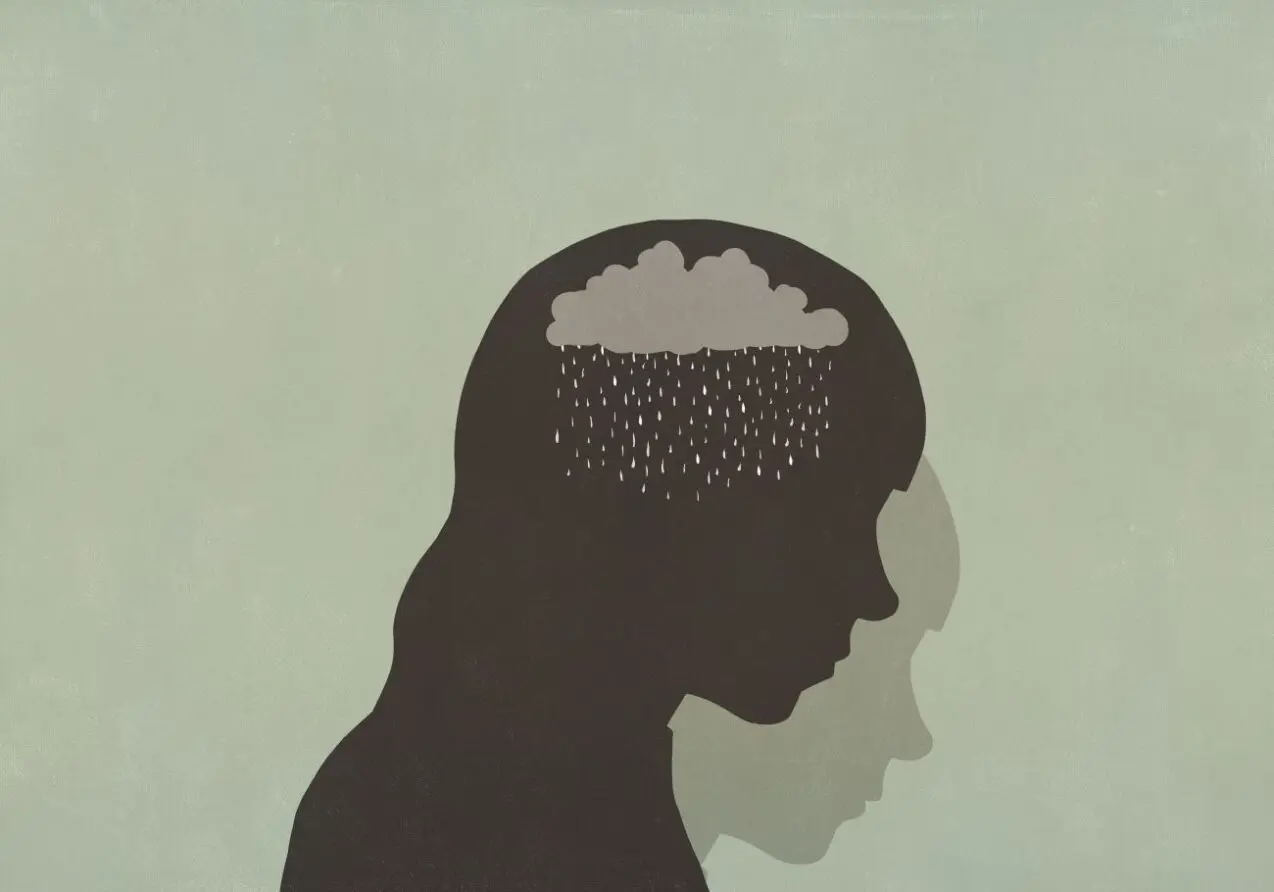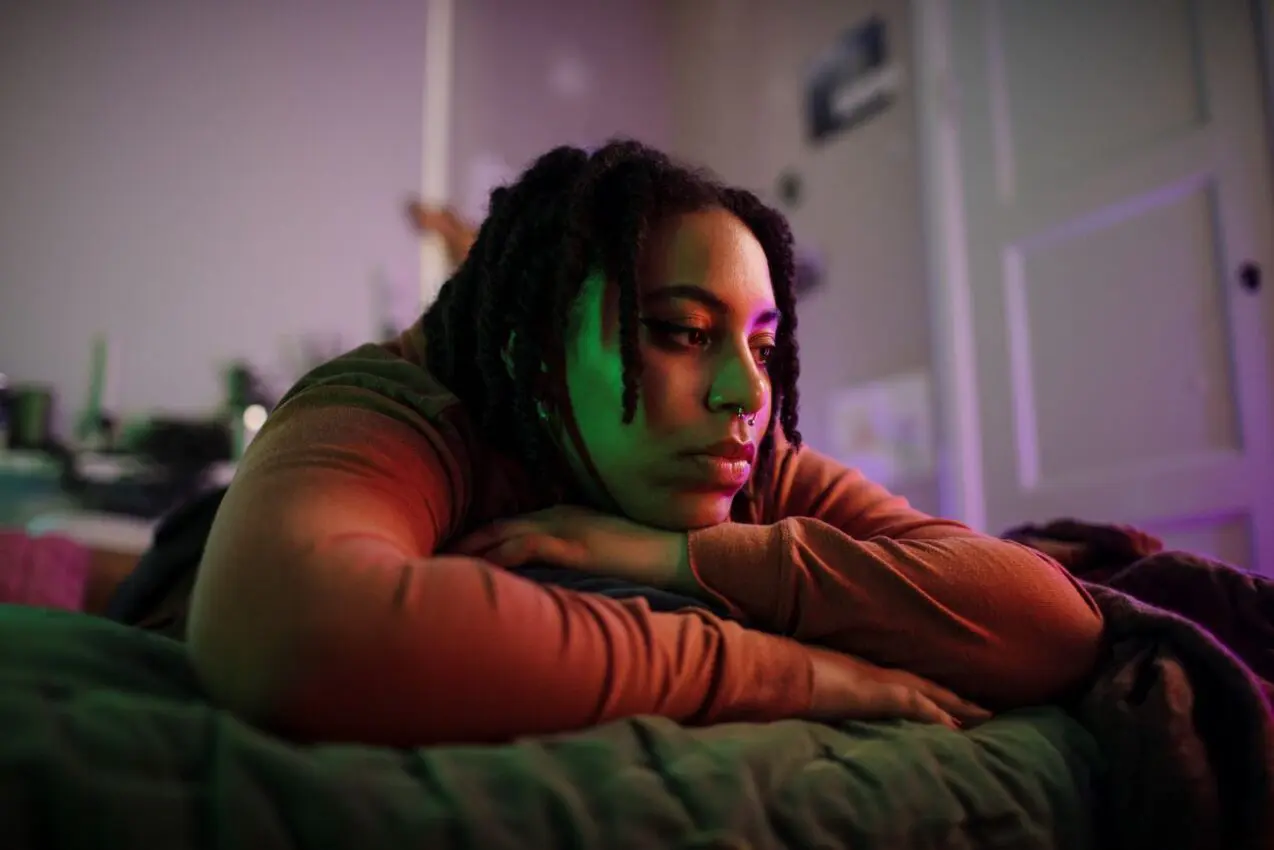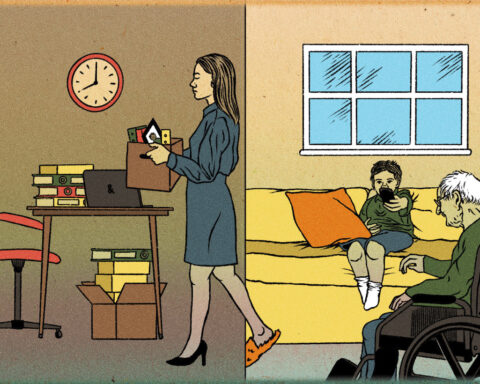On average, individuals experience approximately 6,200 thoughts per day. Among these, some thoughts may be unexpected, unusual, or unsettling. You might suddenly think about steering your car off the road or even pushing someone off a cliff. These thoughts can be disturbing, but they're completely normal.
Psychologists say intrusive thoughts are those nasty, repetitive ideas that pop into your head uninvited - often violent, sexual, or just plain wrong. For some people, these thoughts are more than just occasional nuisances - they can really mess up their lives.
Chapel Hill psychology professor Jon Abramowitz says most people can brush off these weird thoughts without much trouble. "We all have these thoughts, and for the most part, we don’t really do anything with them'" he explains. “We just kind of say, ‘Oh, that’s a doozy." Abramowitz adds.

But TikTok and other platforms have put a whole new spin on intrusive thoughts. Millions are watching videos of people giving in to random urges, like eating confetti at concerts. While this trend helps make the topic less taboo, doctors worry it doesn't show the whole picture.
Ohio psychologist Jessica Beadel points out that real intrusive thoughts often clash with a person's core beliefs and can be pretty upsetting. Unlike the fun stunts in viral videos, most folks don't actually follow through on their intrusive thoughts.
For some people, especially those with OCD, these thoughts can be a living nightmare, leading to compulsions and major life disruptions. Abramowitz says OCD sufferers might take these thoughts at face value, which can wreak havoc on their relationships and daily routines.
If intrusive thoughts are messing with your life, the professionals say it's time to get some help. CBT, especially a method called exposure and response prevention, has been shown to work wonders for intrusive thoughts.
OCD specialist Ben Eckstein says most of his patients see big improvements within a few weeks of starting treatment. "We'll always have some weird thoughts," Eckstein admits, "but they don't have to control our lives. There is a world in which these thoughts aren't impactful."
Mental health professionals want everyone to know that having these thoughts is totally normal and doesn't make you a bad person. While social media has gotten people talking, it often glosses over how tough intrusive thoughts can be for those really struggling.

 4 adults found dead of apparent carbon monoxide poisoning in New Hampshire home, officials say
4 adults found dead of apparent carbon monoxide poisoning in New Hampshire home, officials say
 Woman, 22, accused of stabbing victim over bad tip after pizza delivery in Kissimmee
Woman, 22, accused of stabbing victim over bad tip after pizza delivery in Kissimmee
 The bird at the center of the worst single-species mortality event in modern history isn’t recovering, scientists say
The bird at the center of the worst single-species mortality event in modern history isn’t recovering, scientists say
 Ukraine's military intelligence says North Korean troops suffer heavy battlefield losses
Ukraine's military intelligence says North Korean troops suffer heavy battlefield losses
 China's CATL to seek Hong Kong listing
China's CATL to seek Hong Kong listing
 Holiday shoppers increased spending by 3.8% despite higher prices
Holiday shoppers increased spending by 3.8% despite higher prices
 Treasure Coast postal carrier makes Christmas wishes come true
Treasure Coast postal carrier makes Christmas wishes come true
 'They brought happiness and Christmas cheer': Birmingham Bowl players visit VA Hospital on Christmas
'They brought happiness and Christmas cheer': Birmingham Bowl players visit VA Hospital on Christmas
 Louisville teen playing trumpet outside mall gets surprise PS5 from stranger
Louisville teen playing trumpet outside mall gets surprise PS5 from stranger
 Dark Side of Viral 'Intrusive Thoughts'
Dark Side of Viral 'Intrusive Thoughts'






